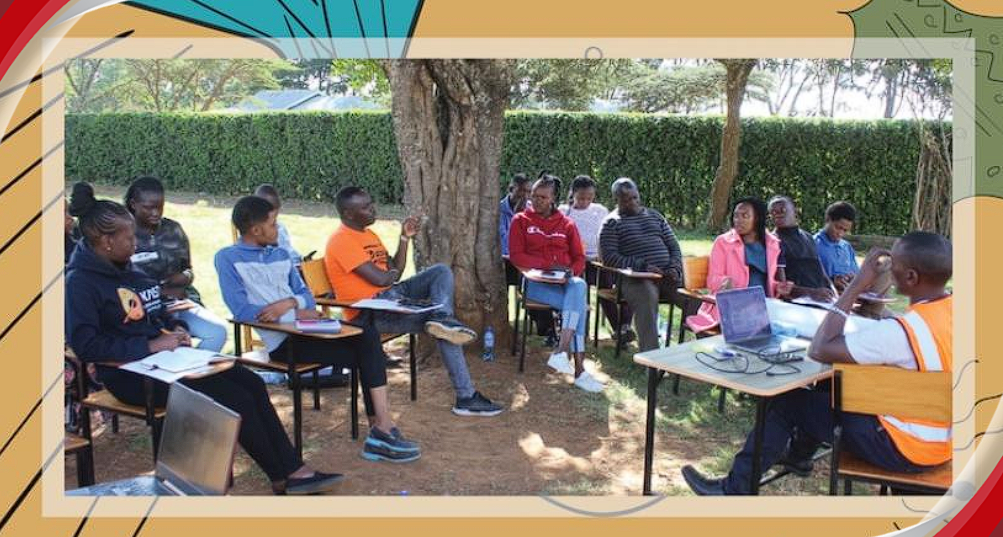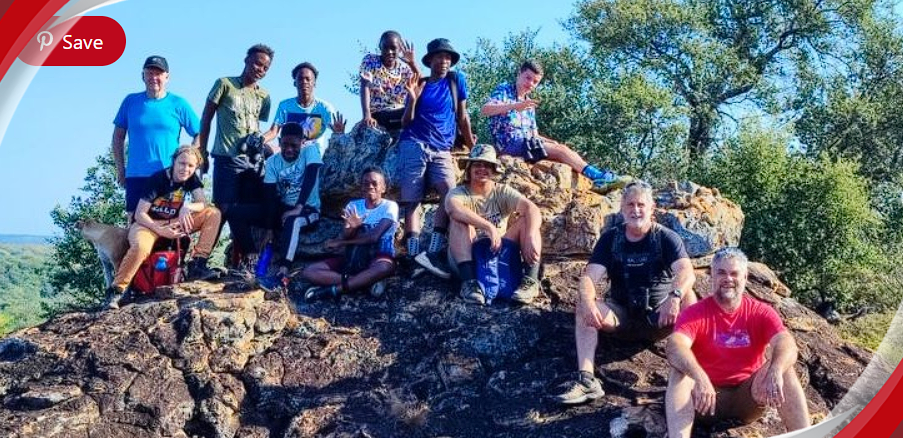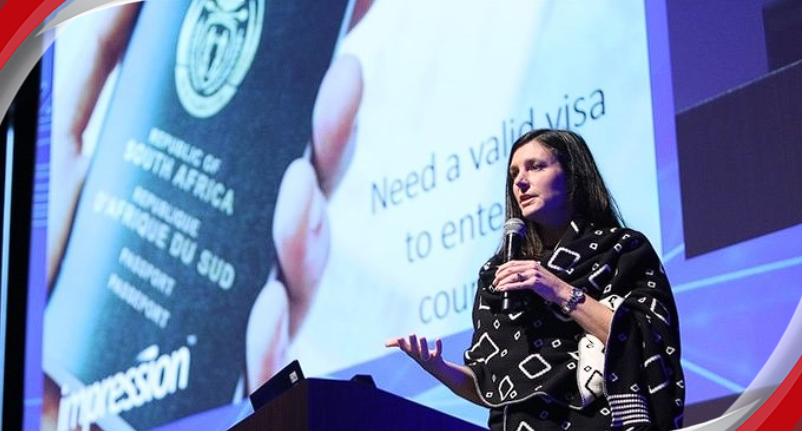Articles
M&L23 – where pedagogy really did meet media…..
-
1 year ago
This year’s Media & Learning Conference under the banner headline ‘Where pedagogy meets media’ was organised by the Media & Learning Association and KU Leuven in Provinciehuis, Leuven on 20-21 June 2023 and involved 267 participants from 18 countries and 111 different institutions, who came together to discuss best use of media in the teaching and learning process in higher education. This short report aims to capture some of the conference highlights and to provide an overview of the conference programme.
The aim of the conference was to highlight the latest pedagogical and technical developments, review institutional policies and learning strategies through a highly interactive agenda packed with inspiring talks, demos, discussions, best practice showcases and hands-on sessions accompanied by an exhibition showing the latest technologies, services and tools that universities and colleges can adopt to transform their use of media. Our core theme “Where Pedagogy meets Media’ took into account one of the most challenging tasks that educators face, namely, how to incorporate media in all its manifestations into the learning process in the most efficient and effective way.
Peter Lievens kicked off the conference’s proceedings with a word of welcome and some notes on how media and learning fits in with the strategic priorities of KU Leuven on going digital and truly international.
Jeremy Nelson’s keynote speech delved into the challenges and opportunities of scaling up XR education in Higher Education. He talked about strategies they had employed at the University of Michigan to bring XR technologies campus-wide. Some key success factors he identified were the use of XR Innovation Projects (where lead faculty are involved with content development) and the integration of student fellows into the teams working on XR projects
Jeremy also looked at current actions to lower the threshold to work with XR technologies, such as platforms that allow people to create their own projects without developers. He insisted on the importance of building a network of champions in different faculties and across the organisation (such as legal, IT, Library, etc) so that XR becomes a viable option next to many others. One of the key success factors are the partnerships the university has created with industry leaders, allowing them to invest in and work with state-of-the-art on a long-term basis. Another key issue is to include accessibility considerations directly from the start.
Anneleen Cosemans presented the KU Leuven approach to offer first-line support for teachers to stimulate educational innovation, with contact points in the faculties. KU Leuven Learning Lab is the Learning-Action network for community building, and realising articulated policy decisions together. It offers a 3 layered support structure, with a website with co-created materials, an academy and support services. She also talked about KU Leuven’s approach to staging innovation, through seed projects, scale-up projects and implementation projects. As the head of the New Media Centre at TU Delft, Michel Beerens reflected on the journey his university has taken through visual formats for knowledge clips. Starting off with Talking Heads where lecturers talk through content, more and more context was added to make the clips more engaging and visually appealing. However, this also involved higher productions costs and are more labour-intensive. He also talked about some challenges, including how to manage content storage, how quality control of the content can be maintained and how to deal with the variety of formats.
On day two, Alexandra Mihai talked about the changing role for Centres of Teaching and Learning (CLTs) at many universities. She talked about how these centres need to balance their target audience of academics with other actors at the university, and this under changing priorities set by university management – creating a neutral space. The strategies they are employing after the experience of the pandemic include taking up their role as bridge builders between groups at the university, offering a safe space for academics and others to talk together and reflect and take up a lighthouse function, where they signpost everything that is going on on-campus, and can be a first port of call for many.
Alexandra also highlighted their important role in offering space for innovation. Future challenges for CLTs are taking up their seat at the table with university administration, but maintaining their neutral role and accessibility to teachers and future-proofing themselves against changing priorities of university management. Alexandra also indicated opportunities to connect with other centres regionally, where resources can be pooled, and not everyone needs to develop the same expertise.
Bart Rientes talked about current research in learning design, learning analytics and the benefits of using learning analytics at scale. Describing its uptake at the Open University (UK), he identified the challenges of exploiting learning analytics as being in the actual adoption, and in sense-making. Prototype studies at the Open University have shown that using learning analytics can increase retention. LA dashboards are greatly useful for teachers, but they need to learn how to use them. Especially, linking learning analytics to learning design (where he quoted that 69% of what a student does in a week is determined by teachers!) seems to be very promising. Some questions he posed for the future, is not only how to scale up LA, but also how to ensure that it remains beneficial for learning; he also wondered how we can use these analytics directly with students, and also make sure that ethical policies are in place to use learning analytics responsibly. He pointed to the learning analytics ethics policy created by the Open University that is open to be used by anyone. Carl Boel presented the outcomes of his study on the potential of immersive technologies for soft skills, using an immersive environment from BodySwaps. He talked about use cases for training where immersive technologies were highly useful (e.g. where training is impossible, or impossible to do safely, where training can be unlimited and personalised with feedback). The outcomes of the study showed that students and instructors think these technologies have their place, where they are useful, easy to use and enjoyable – but that they need the right knowledge and resources needed. Some critical questions from the audience included if we should be worried about industry players such as META who are funding this type of research.
Workshops and interactive sessions
One of the really popular features of the conference this year were the nine small group workshops that took place throughout the agenda. These sessions covered a variety of different subjects and were fully booked. One of the first of these led by Evert Binnard & Hanne Tollenaere from KU Leuven took participants through the Co-creational Educational Multimedia Production Framework developed under the European TransACTION! Project. Participants were invited to put their own course ideas together and try out the framework for themselves. At the same time, Barbora Orlická & Roland Radlinger, from the Center for Digital Teaching and Learning at the University of Graz, Austria kept a small but highly motivated group busy with the design of their own personal Digital Educational Escape Room (DEER).
Rebecca Oldfield & Alex McGaughrin Cross from University of Manchester, UK brought along their own Matterport camera and used it to set up a demonstration and practice session on recording immersive 3D spaces. Workshop participants tried out the practice of recording using this camera for themselves and discussed the practicalities and challenges of doing so in educational settings. The workshop on Podcasting as a learning tool led by Cecille Plomp Bogaard from Saxion University of Applied Sciences in the Netherlands was particularly popular where Cecille generated a great deal of discussion about the value and nature of podcasts by focusing on provocative topics such as whether creating podcasts in education requires a support team or not.
These popular workshops and interactive sessions continued on the second day. With the smile-provoking title of ‘Let’s have a Footnote at 2’33”’, experienced educational video producer Carel Jansen led a discussion on the trials and tribulations of working with scientists in making video content. As Carel pointed out, scientists are often not used to the media production workflow and can feel insecure – sometimes even stubborn! With a focus more on the soft skills that educational video producers need, this session provided lots of tips and tricks to others working in this area. At the same time, Andrea Balz & Iris Nemec from UAS Technikum Wien in Austria led a workshop on Barrier-free design for teaching and learning where they led participants through the different steps in the training provided to university employees to increase the sensitivity of employees with regard to the requirements and needs of people with disabilities – both staff and students. This training is made up of theoretical and practical parts including an introduction to how participants can experience different sensory and motor disabilities. The aptly named workshop ‘A research approach to where Pedagogy meets Media’ led by Yvonne Crotty, DCU, Ireland provided an opportunity to find out more about the Educational Entrepreneurial Approach (EEA) developed by Yvonne that enables practitioners to create multimedia resources for their workplace that are underpinned by sound pedagogical insights. EEA consists of four phases: Exploration, Understanding, Creating and Transforming and this session included a discussion into how educators can incorporate media into the learning process in the most efficient and effective way.
AI was never far from everyone’s thoughts over the two days of the conference and the two workshops specifically on AI were particularly successful. The first entitled AI Tools in the educational media production process was led by Carlos Turro Ribalta from Universidad Politécnica de Valencia, Spain. Carlos was joined by experienced educational media producers Marco Toffanin, Dom Pates, Steven McCombe & Markus Tischner who shared their first-hand experiences of using various generative AI tools in the educational media production process. While many of these tools are still in the development phase, its clear this is a topic that we will be coming back to in the future according as tools mature and our knowledge of how to use them best increases. The second AI session entitled ‘Designing a HE course with the assistance of AI tools’ took a somewhat broader approach. Moderator Janne Länsitie from Oulu University of Applied Sciences in Finland along with Sonia Hetzner, Adel Qaddoumi & Monika Theron led an exchange amongst participants to share experiences and discuss how AI tools can assist productivity in designing new courses and learning materials as well as exploring the process of prompt engineering.
Demo sessions
Participants of the conference were invited to walk around our demo area, on both days of the conference, to ‘visit’ teams demonstrating a variety of different learning tools, environments and services making the most of recent developments including advances in XR. Most of these demos were of pre-market, tools and. In total 7 different tools were presented. These sessions were interactive and allowed participants to meet developers and learn more about their educational tools, their development, and ask questions.
Exhibition
This year’s conference was sponsored by Panopto, Biamp, Kaltura, Canon, Rapidmooc, Ubicast and Sony. The exhibition space, where participants were invited to meet the sponsors, was open throughout the conference. Furthermore, every exhibitor was given the chance to present 1-minute inputs during the opening plenary session, introducing their workshops that were held over the course of two days in the Tech Track.
Media & Learning 2024 – 20-21 June
Save the Date for next year’s conference – Media & Learning 2024 will take place on 20-21 June in Leuven, look out for the call for inputs which will be launched in September 2023.
Related Articles Posts
Categories
Popular Post
-
 SA’s IT spend to outpace GDP growth 1 year ago
SA’s IT spend to outpace GDP growth 1 year ago -
 Vodacom, Netstar launch free in-taxi Wi-... 1 year ago
Vodacom, Netstar launch free in-taxi Wi-... 1 year ago -
 South Africa under pressure to fill cybe... 1 year ago
South Africa under pressure to fill cybe... 1 year ago -
 Organisations with a strong employee val... 1 year ago
Organisations with a strong employee val... 1 year ago -
 Joint policy-in-action event highlights... 1 year ago
Joint policy-in-action event highlights... 1 year ago -
 Boost your digital transformation journe... 1 year ago
Boost your digital transformation journe... 1 year ago








